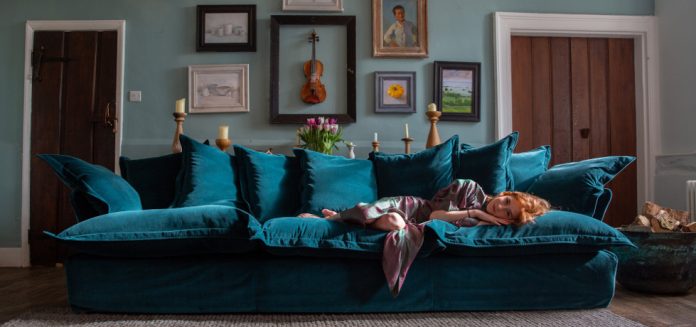In today’s world of rapid urbanisation and growing awareness about the environment, the concept of sustainability has become paramount. The furniture industry, a significant contributor to deforestation and waste production, has a crucial role to play in moving towards a greener future. In recent years, numerous companies have pledged their commitment to adopting eco-friendly practices in furniture production. One such visionary brand is Maker&Son, founded by Alex Willcock and Felix Conran which was acquired by Inc&Co in 2022. This British company has earned a reputation for its unwavering dedication to producing sustainable furniture, utilising environmentally conscious materials and responsible manufacturing practices. In this article, we shall delve into the world of Maker&Son, exploring how they achieve sustainability in their furniture production.
Maker&Son’s Commitment to Sustainable Furniture Production
Maker&Son’s commitment to sustainable furniture production begins with their choice of materials. They use natural, renewable, and biodegradable resources that have a minimal impact on the environment. By incorporating eco-friendly materials such as cotton, linen, hemp, and sustainably sourced timber, they have set a new benchmark in the industry.
In the words of Bradley Coulson, a representative from Maker&Son, “Our commitment to sustainable furniture production is not just about using eco-friendly materials, it’s about our entire process. We want to be responsible in every aspect, from the design stage to the finished product, ensuring we create pieces that will stand the test of time and cause minimal harm to our planet.”
Eco-friendly Materials
- Cotton: Maker&Son utilise organic cotton in their products. Organic cotton is cultivated without the use of synthetic fertilisers, pesticides or genetically modified organisms (GMOs), which reduces the environmental impact of production. It also ensures better soil health and biodiversity.
- Linen: Linen, derived from the flax plant, is another sustainable material used by Maker&Son. It is a renewable, biodegradable, and low-impact resource, requiring significantly less water, pesticides, and energy to produce compared to synthetic fibres. Furthermore, linen is known for its durability and resistance to wear and tear, making it an ideal choice for long-lasting furniture.
- Hemp: The incorporation of hemp fabric is another testament to Maker&Son’s commitment to sustainability. Hemp is a fast-growing, low-impact crop requiring minimal water and no pesticides. It also helps to improve soil quality by absorbing pollutants and replenishing nutrients. Moreover, hemp is highly durable, providing furniture that can last for generations.
- Sustainably Sourced Timber: Maker&Son ensures that the timber used in their furniture is sourced from well-managed forests that adhere to strict environmental and social standards. They work closely with suppliers who have obtained the Forest Stewardship Council (FSC) certification, ensuring that the wood comes from responsible forestry practices.
Responsible Manufacturing Practices
In addition to using eco-friendly materials, Maker&Son employs responsible manufacturing practices to minimise their environmental footprint. Here are some of the key aspects of their approach:
- Local Production: By producing their furniture locally in the UK and Australia, Maker&Son can significantly reduce the carbon emissions associated with transportation. This also allows them to have greater control over the production process, ensuring that each piece meets their high sustainability standards.
- Made-to-order: Maker&Son operates on a made-to-order basis, which means they only produce furniture when there is a demand for it. This approach helps to reduce waste and unnecessary resource consumption, resulting in a more sustainable production process.
- Skilled Craftsmanship: The company works with highly skilled craftsmen who are passionate about creating timeless pieces that can be cherished for generations. This focus on quality and durability encourages a culture of reusing and repurposing furniture, rather than throwing it away and contributing to the growing problem of waste in landfills.
- Waste Reduction: Maker&Son is committed to minimising waste in every aspect of their production process. They utilise offcuts and leftover materials to create smaller items, such as cushions and accessories, thus reducing their overall waste output. They also invest in efficient production techniques to ensure minimal material wastage.
- Energy Efficiency: The brand’s commitment to sustainability extends to their energy consumption. Maker&Son employs energy-efficient lighting and machinery in their workshops, aiming to reduce their overall energy usage and carbon footprint.
- Packaging: Maker&Son’s focus on sustainability is evident in their packaging choices as well. They use recyclable and biodegradable materials for packaging, avoiding single-use plastics and non-recyclable materials wherever possible. This not only minimises waste but also reduces the environmental impact of their shipping process.
The Road Ahead
As the world becomes increasingly aware of the need for sustainability, brands like Maker&Son set a powerful example for the furniture industry. By prioritising eco-friendly materials and responsible manufacturing practices, they demonstrate that it is possible to create beautiful, high-quality products without compromising the environment. Their commitment to sustainability is not only admirable but also serves as an inspiration for others in the industry to follow suit.
Maker&Son has taken significant strides towards sustainable furniture production, combining traditional craftsmanship with modern, environmentally conscious practices. By using eco-friendly materials and responsible manufacturing methods, they have created a brand that is not only successful but also serves as a beacon of hope for the future of the furniture industry. As Bradley Coulson stated, “Our commitment to sustainable furniture production is not just about using eco-friendly materials, it’s about our entire process.” Maker&Son’s holistic approach to sustainability is truly commendable, and we look forward to seeing their continued success in promoting a greener future for the industry.

